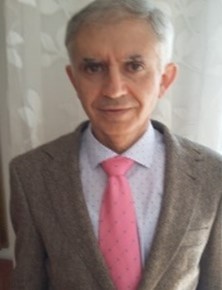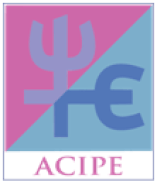
Juan Fernández
UCM Faculty of Psychology (Spain)
Cyberpsychology: educational and health areas.
The digitization of our world today is advancing at a dizzying pace, and there is no way to imagine turning back. Digitalization is here to stay and spread. From a psychological point of view, we are particularly interested in the interactions between people and these digital technologies, always framed in their corresponding contexts. Hence, within Psychology, we can and should speak of Cyberpsychology. If the virtual is a growing part in any of the human spheres, then we will need to know how it affects individuals, being psychology the one that should deploy in each case its enormous potential for positive interventions. Consequently, we are very interested in knowing what this discipline is about as far as education and health are concerned, in order to be able to face our immediate future as academics, as professionals and, above all, as people, with relative success. If almost everything is digitized - that is our near horizon - we are going to have a lot of data that needs to be treated appropriately. That is why we already rightly speak of Data Science. This is a field -discipline- that it is pertinent to explore if we want to understand our current and future situation with certain rigor. What is digitized is necessarily archived in the corresponding Databases. They will be more and more abundant and extensive, which will require a very detailed knowledge for the good handling of the data and its correct interpretation. These are the three cores around which this Panel of Experts will revolve. As it happens with human realities, also in this one - that of digitalization and its derivatives - we find enormous advantages in comparison with what is offered by analog systems but, equally, with certain risks. In Psychology and Education we must keep ourselves well informed -scientifically informed- in order to be able to make the most of the advantages and, as far as possible, mitigate the risks. The three selected experts have sufficiently adequate curricula vitae for us to enjoy sharing their knowledge. In this way, our society will win, and each of us and the people with whom we interact as researchers, teachers and professionals will win. Participation -bidirectionality: experts and congress participants- will undoubtedly be welcome, given its enriching potential.
President of ACIPE (Scientific Association of Psychology and Education). First editor of The Spanish Journal of Psychology. First coordinator of the official Master's Degree in Educational Psychology at the Faculty of Psychology of the Complutense University of Madrid. Professor emeritus of this University. Author and co-author of books, articles in journals -recognized in JCR- and several assessment instruments in his two lines of research: evaluation of teaching quality and sexual and gender development. As a researcher he has five sexenios, as a teacher his continuous evaluation -Docentia- is very positive. He contributes, through his reviews -more than a hundred-, to the dissemination of very influential works of relevant authors at national and especially international level (Nobel Prize, Pulitzer, Princess of Asturias...). He has collaborated with the OECD (Organization for Economic Cooperation and Development) with publications and seminars on teaching evaluation in universities.





